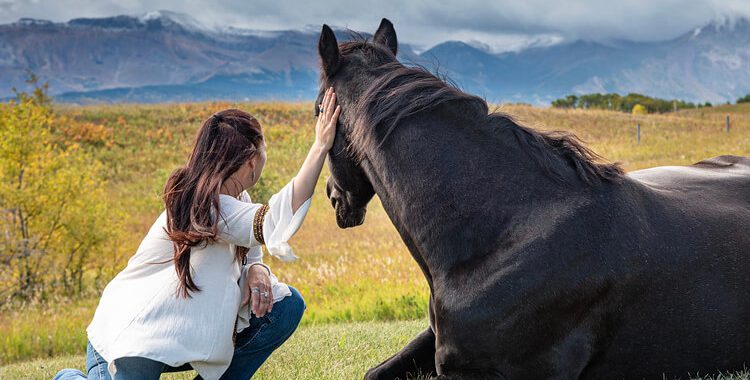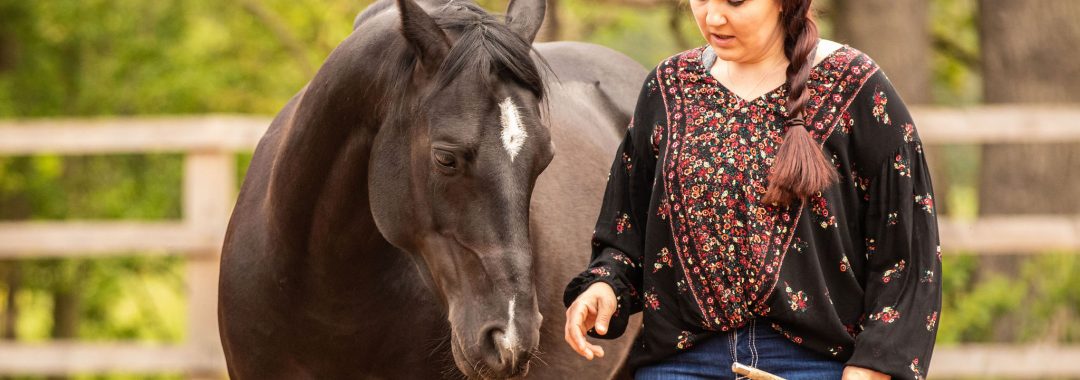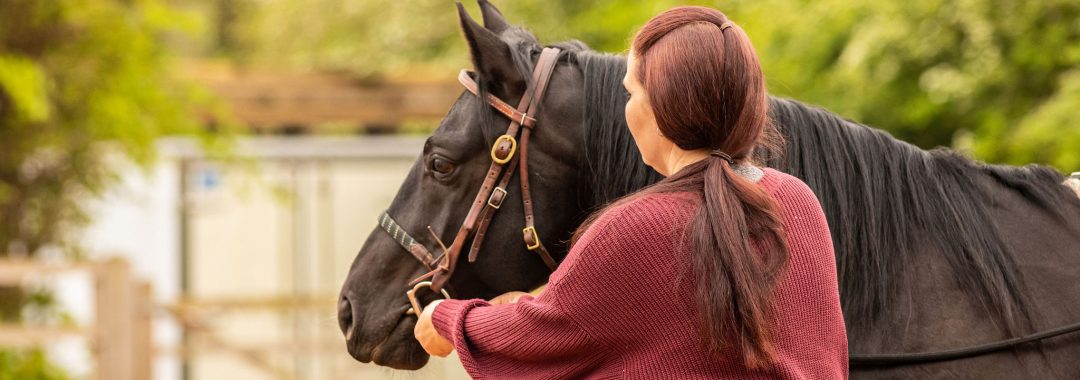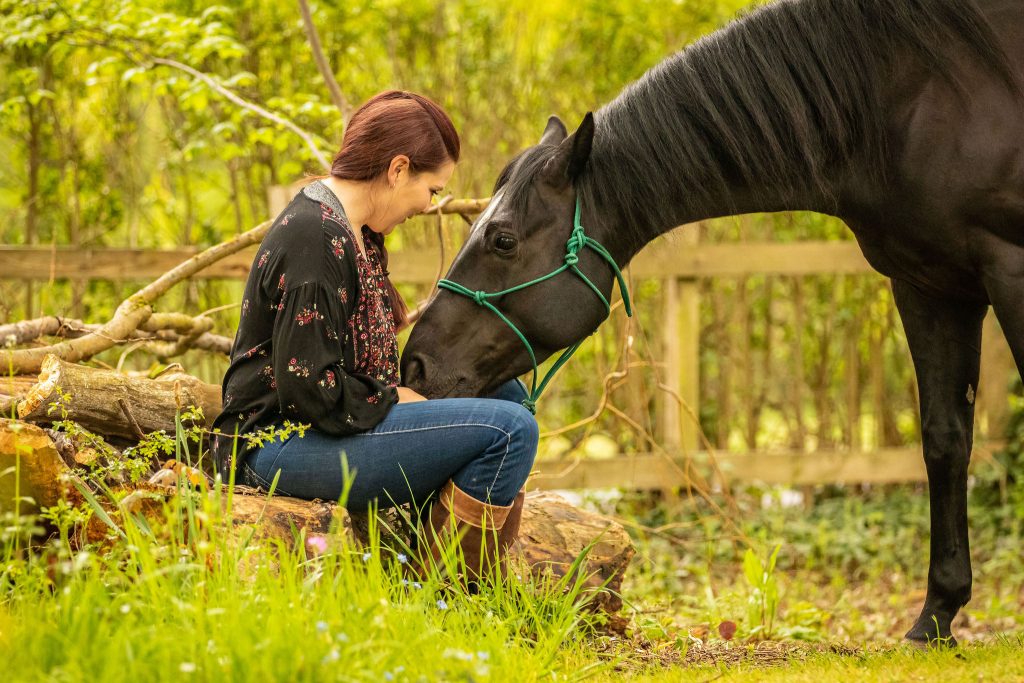As someone who is passionate about helping horses and humans develop deeper connections and confidence, within themselves, and within relationships with each other; ‘confidence’ and the state of being ‘confident’ is a word I hear thrown around a lot.
But what does it mean to be confident? Here we’re going to look at it from two different perspectives, human, and horse.
First off, let’s take a look at what confidence means to us human beings.
Confidence is a word that can be construed in a myriad of different ways, and over the years it’s become a word that could potentially be quite loaded, depending upon its use, and the meaning from the person speaking it. In our society for instance, more often than not, someone who is deemed to be ‘over confident’ is someone to be disapproved of, thought of as arrogant, and to some, a person deemed to be so, could be seen as someone outspoken, opinionated, and perhaps even ‘gung-ho’ and thoughtless. As a nation of people who pride themselves on being stoic, humble, and self-deprecating, describing ourselves as being confident, is something that we often shy away from.
The dictionary definition of ‘confidence’ however, is ‘the feeling or belief that one can have faith in, or rely on someone, or something’.
Feeling, Belief, and Faith. Those words stand out to me in that definition, because I think they articulate perfectly what I personally consider ‘true’ confidence to be.
For me, confidence isn’t about what you tell people. It’s not how you articulate your experience, or your knowledge, it’s not about how you present yourself, or even in the actions you take. It isn’t about jumping the highest jump in the arena, climbing on the bucking horse, or galloping out on a hack, when you’d rather just have a casual amble around the countryside, watching the world go by.
For me, confidence is feeling that you are adequately prepared for any situation that may arise, and feeling relaxed, and happy because of it. It’s having faith in your own knowledge and training, and being open minded enough to ask questions and seek help, if something pops up that’s out of your comfort zone. It’s about having the grace, to understand that both horsemanship, and self-development, are INCREDIBLY closely connected, and that the journey of learning and growing both, is endless. It’s having the self-belief, to hold your course, no matter what others may say, or situations that may present themselves to you. It’s having the empathy and patience, to understand that everything and everyone can teach us something, for better, or for worse- and nothing happens to us that we can’t handle.
Finally, for us humans, I think it’s so important to accept, that confidence is something that takes time, and can ebb and flow like tides of the sea. Starting new ventures, hobbies (for instance riding a different horse or in a different discipline) can often leave us feeling slightly vulnerable, and lacking in an abundance of the c-word, but with time and the right support, the aforementioned feeling, faith, and the belief, will grow and blossom. It is OK, and it is natural, to feel vulnerable. Without vulnerability, we cannot grow. We are only human of course, none of us are perfect, we all start somewhere, and we were all put on this earth to grow and learn.
So, what about confidence for our horses? What does it mean for our four-legged friends? Going boldly where no horse has gone before? Handling any new experience without so much as a snort?
What does a confident horse look like?
For me, a confident horse is relaxed, and able to focus on the job or situation in hand. Whether that is chasing a cow, mooching around the countryside on a hack, executing a reining pattern in a casual, and super cool manner, or simply standing and enjoying a groom from their devoted human. This horse has soft eyes, feels relaxed enough to lick, chew and yawn on occasion, and has a casual interest in their surroundings. This horse, it’s important to add, is not to be confused with a horse that is ‘shut down’, (a subject for another time).
As prey and flight animals, horses are hard wired to question their safety in any new or potentially threatening environment, or situation. They have a primal instinct to want to survive and feel safe, and it is up to us as their humans, to help them relax and learn that they can trust in us, and whatever we may present them with. It’s important to add here, that we have to allow our horses to show emotion, and to respond to things. If we do this, making sure we are rewarding signs of relaxation, we can exercise their ‘panic muscle’, turning the ‘OMG’ into the ‘oh ok!’ without ‘shutting them down’. With understanding, repetition, and breaking down and building up the ‘scary’ things, we can help them build confidence, in themselves, and in us.
Sure, some horses, as with humans, are born to be more relaxed and confident than others, and some can be ‘sharper’, more alert, and reactive, depending on breeding, genetics, and experiences (good or bad) in their lives up to now. But I think for us, it’s important to realise that we CAN help our horses, if we take the time to recognise stress indicators, body language, and the other small signs our horse may give us that they are worried, or reaching their thresholds of fear, and not feeling so confident about what they are experiencing in any given moment.
By recognising and responding to the signs our horses are giving us, and working WITH our horses in every moment, we can help them to enter any new environment or situation with a little more serenity, and a little less ‘oh my god am I going to die?!’.
By having the empathy, patience, and understanding to be able to break things down into manageable steps, we help our horses to feel seen, heard, and understood. While working in this way is definitely not a magical overnight fix, it will lay the foundations of a deeper connection, and a growth of trust between you and your horse.
The results from applying this approach to your life with your horse in this way, are profound, and if your horse is confident in you, and trusts you, then you can be more confident in your horse, and trust in yourself, and achieving your goals, big or small. Then you can stride off into the world together, as a partnership, feeling pretty damn good about yourselves and wherever it is you’re headed!
So here’s to cultivating that feeling of confidence, whatever that means to you, and your four legged friend.



